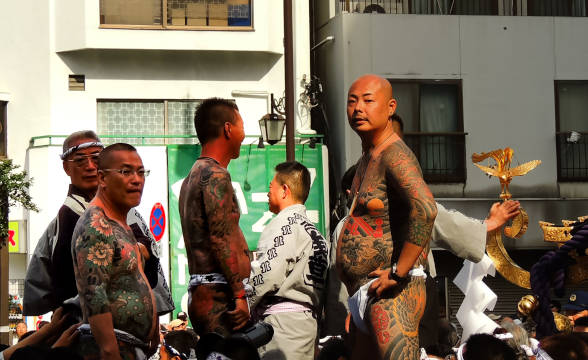The organized crime control division within the Metropolitan Police Department in the Japanese capital announced it had arrested four gang members for racketeering an illegal casino in Tokyo.
Suspicion of Profiting from Illegal Gambling
The four men among which a former YouTuber were arrested for collecting money for protection from an illegal gambling den which was busted by the police in November last year and led to the arrests of the casino’s manager and three employees on suspicions of profiting from an illegal gambling den. The arrested were later indicted.
Shunta Sakai, a 39-year-old resident of Tokyo’s Minato Ward and a gang member affiliated with the Sumiyoshi-kai crime syndicate, and three others were arrested on suspicion of violating the Act on Punishment of Organized Crimes and Control of Proceeds of Crime.
Sakai, who is also known as YouTuber “Tekisasu,” allegedly collected a total of ¥1.1 million ($8,400) from the manager of the illegal casino on four occasions between August and November 2021. The illegal proceeds were collected at different locations, including a café in the Kabukicho entertainment district of the capital’s Shinjuki Ward.
The official police announcement did not reveal information on whether the four arrested have admitted to the allegations.
IR Casino Political Scandal
Casino-related arrests in Japan was a hot topic in 2019 and 2020 when the country was shaken by a series of arrests of high-profile political figures for taking bribes in exchange for political support for integrated casino resort projects and operator candidates.
In December 2019, Tsukasa Akimoto, a member of the ruling Liberal Democratic Party (LDP) and former Senior Vice Minister at the Cabinet Office, was detained for allegedly being paid by notorious Chinese operator 500.com. The arrest additionally impacted the already low public sentiment about the upcoming IR projects.
Seven months later, Akimoto was sentenced to four years in jail without suspension and a fine of $68,300.
The IR corruption scandal exploded a month later after information about much larger bribes being handed to five other lawmakers surfaced. The lawmakers were part of a group designed to boost international tourism in Japan.
Eventually, the scandal spread to another party, Nippon Ishin no Kai, which opted to expel its House of Representatives member Mikio Shimoji, who was also found to have accepted bribes from 500.com to support the firm’s bid to build a resort in Hokkaido Province, instead of accepting his resignation.



